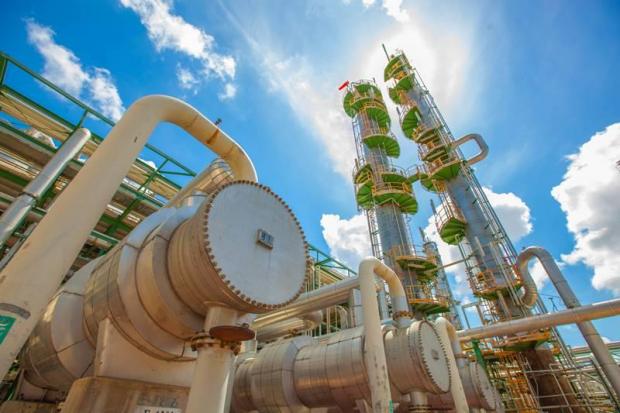
PTT Global Chemical Plc (PTTGC), Thailand's largest petrochemical producer, plans to focus more on penetrating the Asean region, as the market has great potential.
Patipan Sukorndhaman, chief operating officer for downstream petrochemical business, said PTTGC has set a target sales volume for the region of 70% of total capacity for polyethylene (PE), an everyday-use plastic polymer.
The company's total PE capacity is 1.9 million tonnes, with Asean accounting for 50% of sales volume last year.
Indonesia, Myanmar and Vietnam have high demand, and those countries do not have local ethylene crackers or the raw materials needed for PE, so they rely on imported material from Thailand, among others.
In addition, PE demand from those three countries averages 8-9% annually, higher than other Asian countries, including Thailand, which is 3-4%.
Mr Patipan said PTTGC plans to open two representative offices in Indonesia and Myanmar this year. The company already has an office in Vietnam.
PTTGC also has offices in Guangtong and Shanghai, China, as well as in Dubai, United Arab Emirates.
Mr Patipan said PE sales in Asean grew by 10% to 1 million tonnes last year, led by sales from Vietnam and Myanmar.
"We dominated the PE market in Vietnam with a market share of 20% or 200,000 tonnes in 2017, while we reached sales volume of 30,000 tonnes in Myanmar," he said. "Although overall PE demand has seen steady annual growth, it is expected to surge in the near future when the market shifts to higher-grade plastics."
Mr Patipan said consumer market growth will raise demand for plastic packaging. Indonesia, Myanmar and Vietnam may soon localise production to serve growing demand and reduce the quantity of imported goods.
But average plastic consumption in these countries is less than 5 kilogrammes per person per year, compared with 20kg in Thailand.
Mr Patipan said PTTGC is planning business matching events between plastic buyers and sellers in those emerging markets.
In Myanmar, PTTGC recently opened a new warehouse to boost its logistics capabilities there, as the system is currently underdeveloped, hampering transport times.
In a related development, PTTGC has teamed with two of Japan's leading chemical and trading firms, Kuraray Co (KRR) and Sumitomo Corporation (SC), on a high-value petrochemical production facility in Thailand.
The company signed a joint venture agreement to conduct a feasibility study of a production facility for high-heat resistant polyamide-9T (PA9T), with annual capacity of 13,000 tonnes, and hydrogenated styrenic block copolymer, (HSBC) with annual capacity of 16,000 tonnes.
KRR owns a 53.3% stake, while PTTGC and SC hold 33.4% and 13.3%, respectively.
The tentative production site is Hemaraj Industrial Estate in Rayong.
PTTGC furthermore plans to merge its three subsidiaries to make polymer products such as auto parts and electrical components.